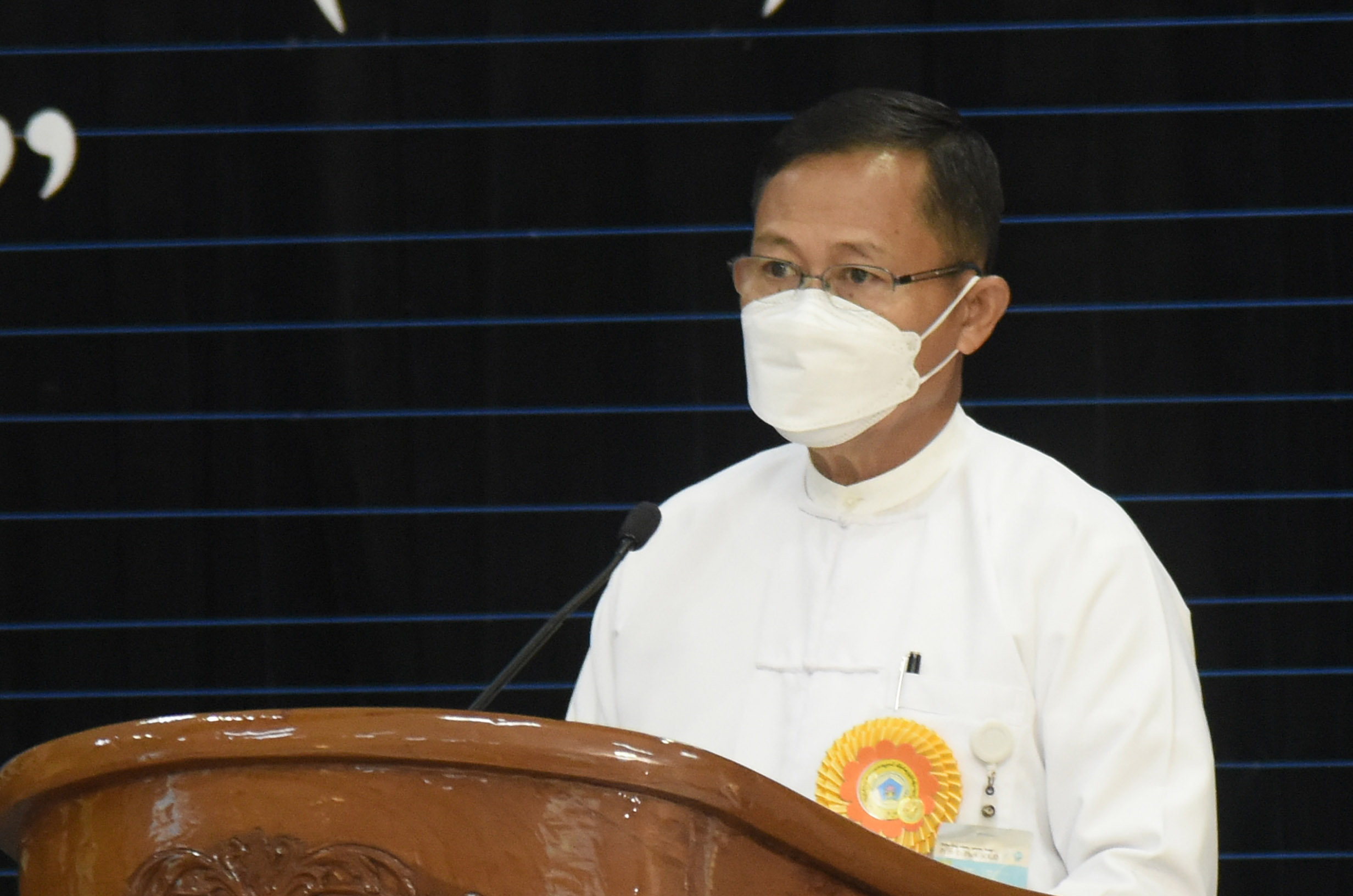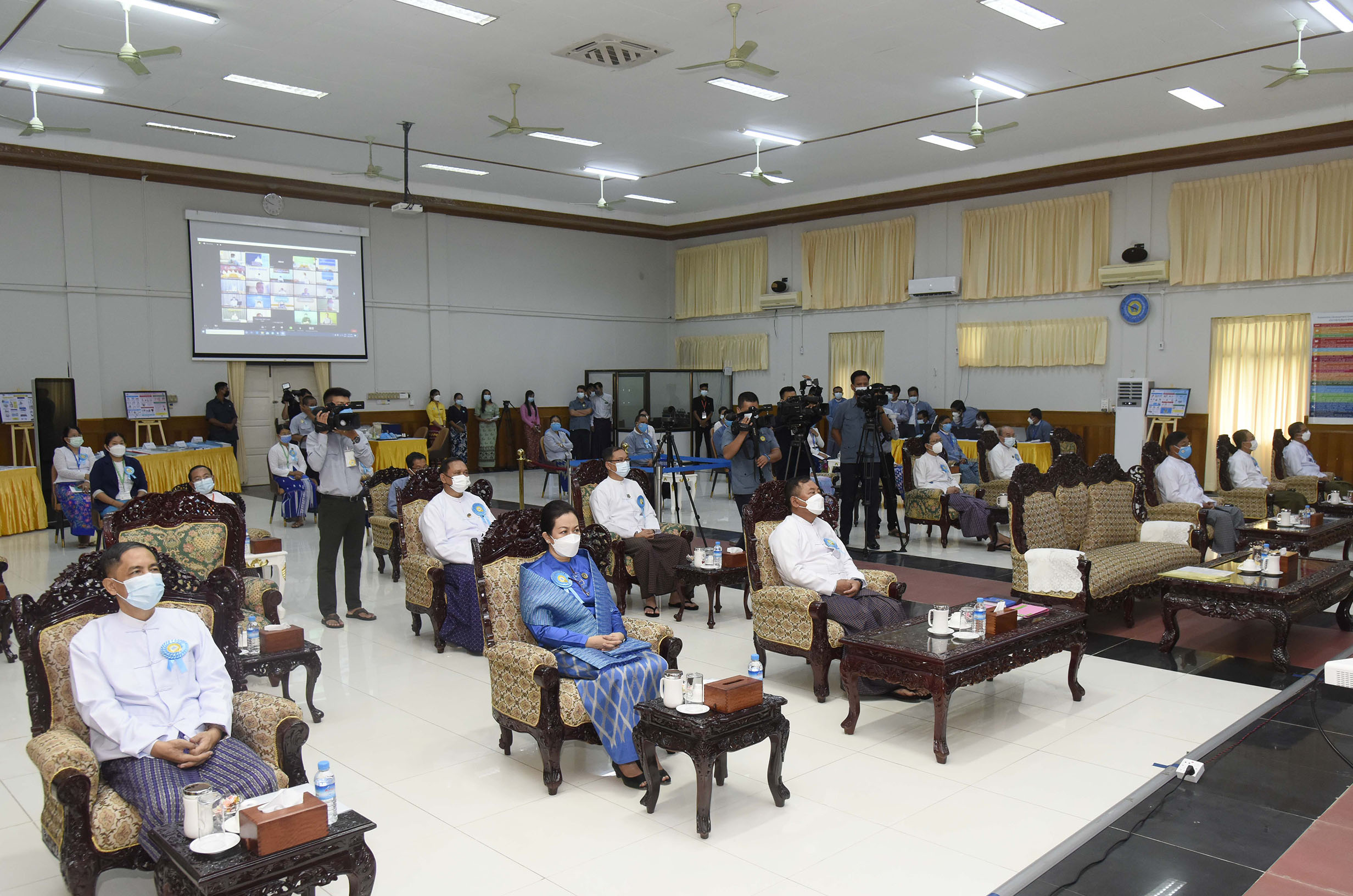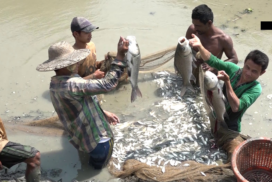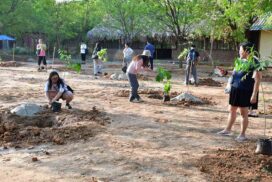The cyclonic storm Nargis which hit in 2008 was the most destructive natural disaster recorded as the most terrible climate change for the history of natural disasters in Myanmar as well as in the Asian Continent after 1991, said Chairman of the National Disaster Management Committee Vice-Chairman of the State Administration Council Deputy Prime Minister Vice-Senior General Soe Win at the ceremony to mark the International Day for Disaster Risk Reduction 2021 which took place at the Ministry of Social Welfare, Relief and Resettlement in Nay Pyi Taw yesterday morning.
In his address, the Vice-Senior General said the United Nations set the International Decade for Natural Disaster Reduction-IDNDR from 1990 to 1999, aimed at effectively managing the reduction of natural disaster risks across the world. Hence, all global countries raise the tasks to mitigate the loss in natural disasters.
As the natural disaster risks could not decline remarkably, the First World Conference on Natural Disaster took place in 1994 which adopted the Yokohama Strategy for a Safer World: Guidelines for Natural Disaster Prevention, Preparedness and Mitigation and its Plan of Action.
It is necessary to take lessons from the past events to protect against loss and destruction of living beings and non-living ones, mitigate and reduce the disaster risks and develop the work process for raising the awareness of natural disasters.
The second conference was held in Hyogo of Japan in 2005 to adopt the Hyogo Framework for Action (2005-2015) and the third conference in 2015 which adopted the Sendai Framework for Disaster Risk Reduction 2015-2030.
Myanmar implemented the natural disaster risk reduction depending on geographical conditions of the nation and action plans in conformity with the resources in line with the Hyogo and Sendai frameworks. Myanmar marks the international day for disaster risk reduction as of 2010, and this year’s ceremony will be held in accord with the theme: Only together…Can we save the planet!
The theme was set with the aim of raising international cooperation till 2030 so as to provide adequate assistance for the national level tasks of the developing countries in implementing the sixth vision of the Sendai Framework in 2021.
It is necessary to take lessons from the past events to protect against loss and destruction of living beings and non-living ones, mitigate and reduce the disaster risks and develop the work process for raising the awareness of natural disasters.
The cyclonic storm Nargis which hit in 2008 was the most destructive natural disaster recorded as the most terrible climate change for the history of natural disasters in Myanmar as well as in the Asian Continent after 1991.
The majority of the global countries followed the climate change convention, the Tokyo protocol, the Bali roadmap, the Paris agreement and many agreements that emerged from the First UN Environmental Conference in 1972 and the World Earth Summit in 1992.
Conservation of the planet Earth and reduction of natural disaster risks cannot be implemented by a single country and an organization. Only when all the people from the countries, organizations and individuals from various arenas follow the visions will the whole world and each country meet the goals to some extent.
The 7 Global Targets of the Sendai frameworks motivated the international aid organizations to give further aid to the developing countries. It is obvious that the global countries participate in the prevention, containment and treatment activities of COVID-19 in line with seven Global Targets of the Sendai frameworks.
Relevant departments and organizations need to emphasize the efficient use of local and international aid in mitigating the impacts of the COVID-19 pandemic, natural disasters and manmade dangers. Region and state governments are urged to cooperate with Union ministries in operating the natural disaster management machinery for the country to have socio-economic development with the resilience of climate change.
Relevant departments and organizations need to emphasize the efficient use of local and international aid in mitigating the impacts of the COVID-19 pandemic, natural disasters and manmade dangers. Region and state governments are urged to cooperate with Union ministries in operating the natural disaster management machinery for the country to have socio-economic development with the resilience of climate change.
Then, the video messages sent by the UN Secretary-General and the Chief of UN Office were presented. A video clip to mark the International Day for Disaster Risk Reduction 2021 was also presented. The Vice-Senior General then viewed the documentary books, pamphlets and booklets on disaster risk reduction.—MNA















